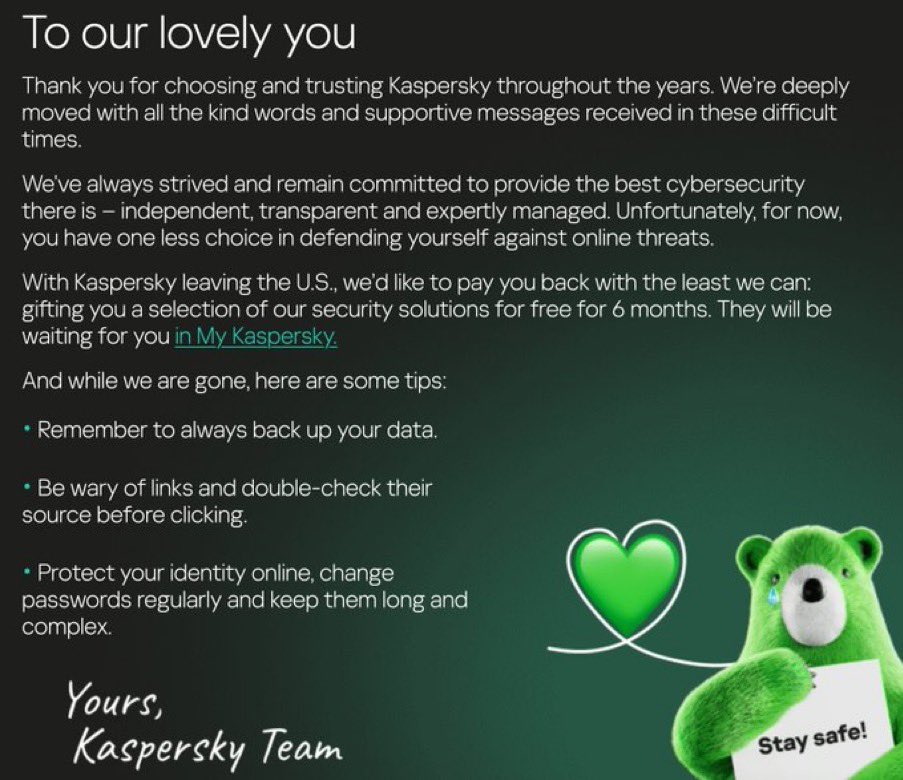Kaspersky, the well-known Russian antivirus software company, has announced its departure from the U.S. market,effective July 20. This decision comes after the restrictions imposed by the Biden administration.
For many in the tech and cyber security world, this news feels like saying goodbye to an old friend. Kaspersky has been a legion in the antivirus industry for decades, earning respect not just for its robust software but also for its groundbreaking research in the cybersecurity field.
Veterans of the industry might recall the late ’90s and early 2000s when Kaspersky stood shoulder-to-shoulder with giants like ESET (formerly NOD32) and F-Secure (previously Data Fellows) as the go-to solutions for top-tier virus protection. Each brought something unique to the table: ESET was known for its behavioral analysis, F-Secure excelled in low-level detection, and Kaspersky? It was the king of memory protection and scanning.
But times change, and geopolitical realities have caught up with the tech world. The U.S. Commerce Department’s recent announcement barring the sale of Kaspersky products in the country has forced the company’s hand.

For American customers, the impact is immediate. Visits to Kaspersky’s website are now met with a sobering message: “purchase unavailable for U.S. customers.” It’s a digital curtain coming down on years of service and trust.
The news of Kaspersky’s departure from the U.S. market is a reminder of the complex and often fraught relationship between cybersecurity companies and governments. As the threat landscape continues to evolve, it’s essential for consumers and businesses to stay informed about the companies they trust with their online security.
In the meantime, Kaspersky’s legacy in the world of cybersecurity will be remembered as a testament to the company’s commitment to excellence and innovation. As we bid farewell to Kaspersky, we can only hope that its departure will pave the way for new and innovative solutions to emerge in the cybersecurity space.












